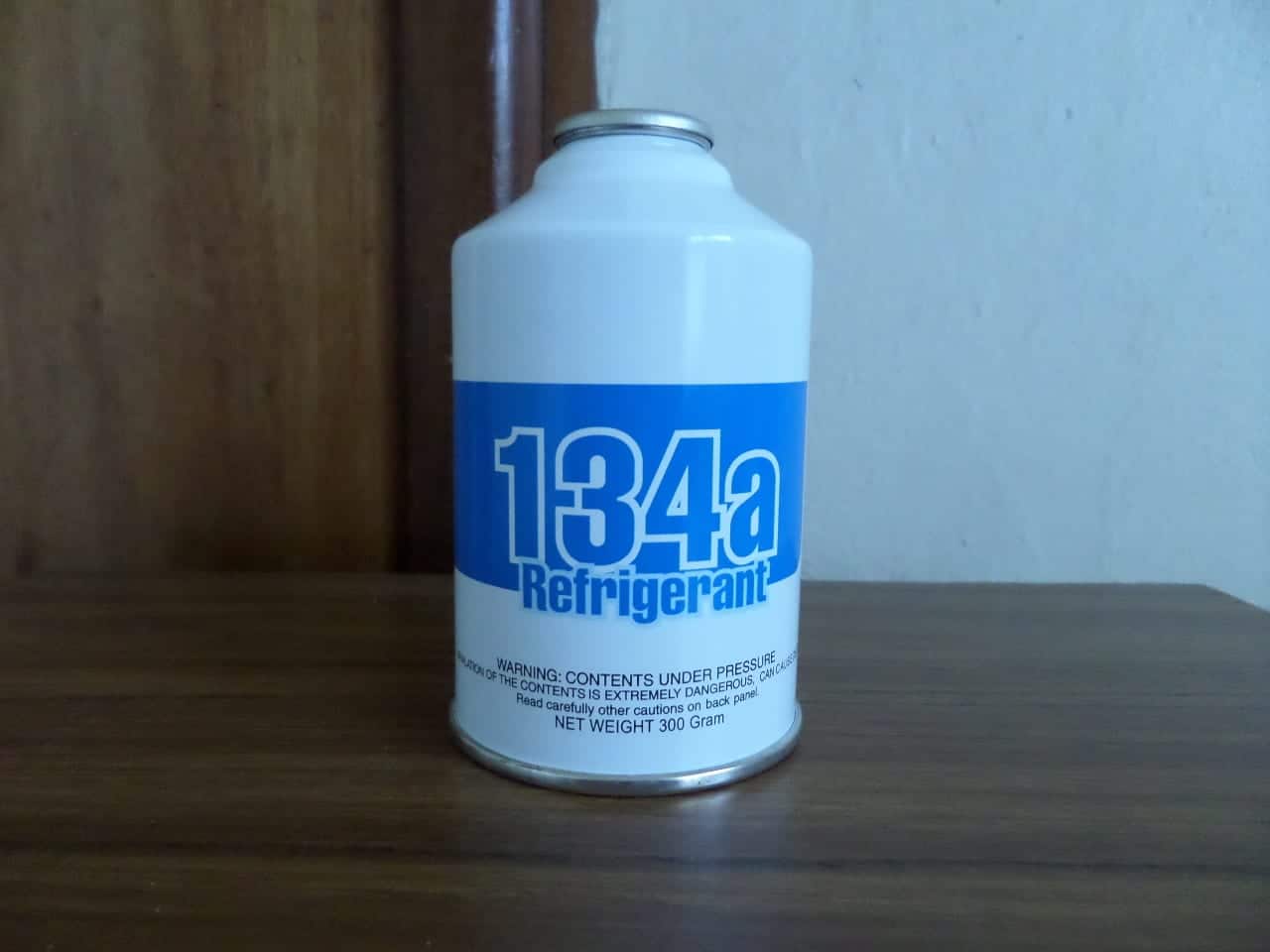Properties of common refrigerants are shown in the table below.
| Refrigerant | Alternate Name | ODP | Boiling Point (°C) | Boiling Point (°F) |
|---|---|---|---|---|
| R-22 | Chlorodifluoromethane | 0.05 | -40.9 °C | -41.6 °F |
| R-407C | N/A | None | -43.6 °C | -45.4 °F |
| R-290 | Propane | None | -42 °C | -43.6 °F |
| R-410A | Forane 410a | None | -52 °C | -61.0 °F |
| R-134A | Tetrafluoroethane | None | -26.3 °C | -14.8 °F |
| R-1234yf | Tetrafluoropropene | None | -30 °C | -22.0 °F |
| R-12 | Dichlorodifluoromethane | 1 | -29.8 °C | -21.6 °F |
R-134a Overview
R-134a is a common refrigerant used in residential refrigerators around the world, and in automobiles. Most automotive air conditioning systems (except in Australia and possibly other countries) use R134a as a refrigerant.
R-134a took over from its older predecessor R-12 in the early 1990s, and is likely to be replaced soon due to its global warming potential (GWP). However, R-134a is not an ozone depleting refrigerant. A refrigerant with a high GWP has a greenhouse gas-like effect that traps heat, exacerbating climate change. A refrigerant with a ozone-depletion potential (ODP) damages the ozone layer, which is an entirely separate issue from climate change.
R-12 Overview
R-12 is R-134a’s older predecessor, and it was used in most automotive air conditioning systems, as well as in household refrigerators. While R-12 had it’s benefits, it was found to cause ozone layer depletion, leading to a global phase-out which has now been completed.
R-22 Overview
R-22 is commonly used in older household air conditioning systems (as well as some larger commercial HVAC systems), but not automotive ones. It has been for decades, but is now undergoing a global phase-out due to it’s ozone-depletion potential.
In new air conditioners in the United States and some other countries, R-22 has been replaced by it’s successor R-410a, which has no ozone-depletion potential. R-410a does, however, have a global warming potential, and is likely to be phased out as well.
R-290 Overview
R-290 is propane, an extremely common, versatile, and flammable gas used to power ovens, stoves, absorption refrigerators, and also as a refrigerant. Propane’s use as a refrigerant never caught on like R-134a because it is flammable.
Sources:
Modern Refrigeration And Air Conditioning – 20th edition (G-W Publishing).





